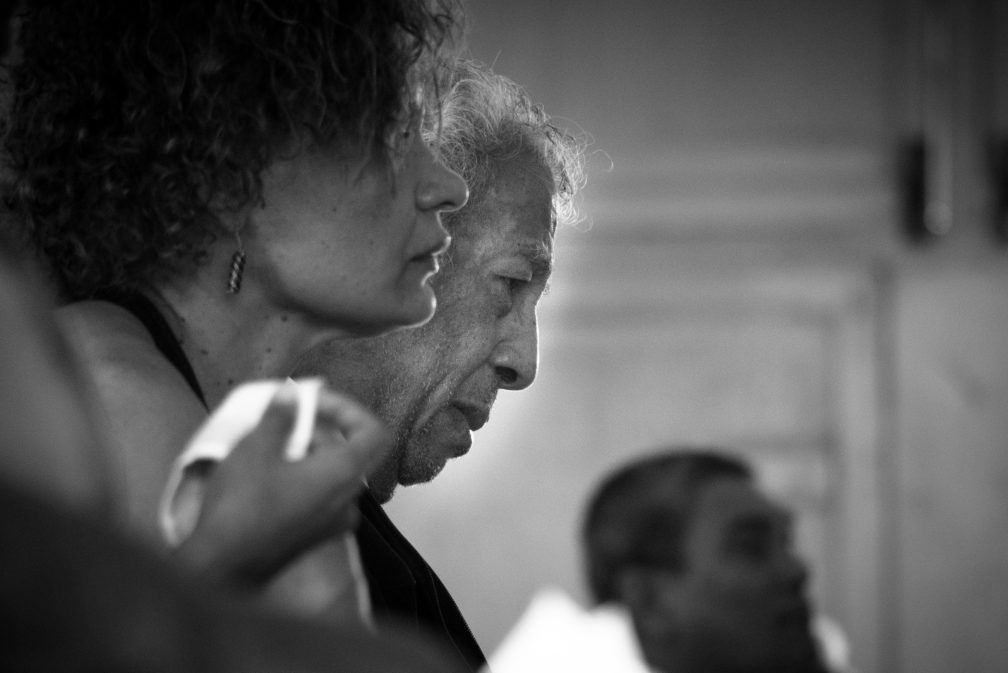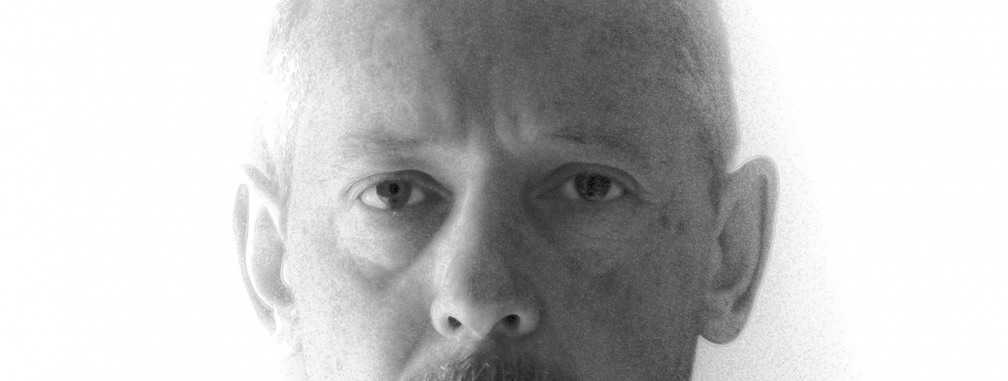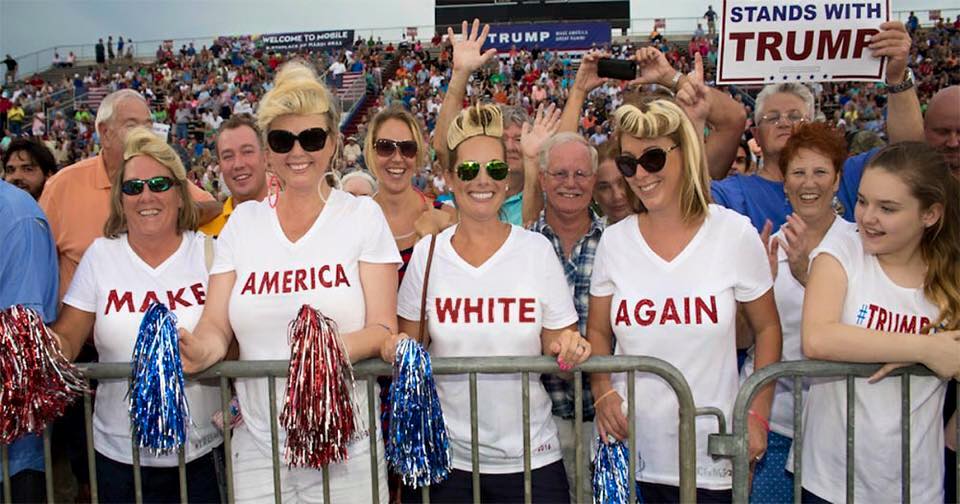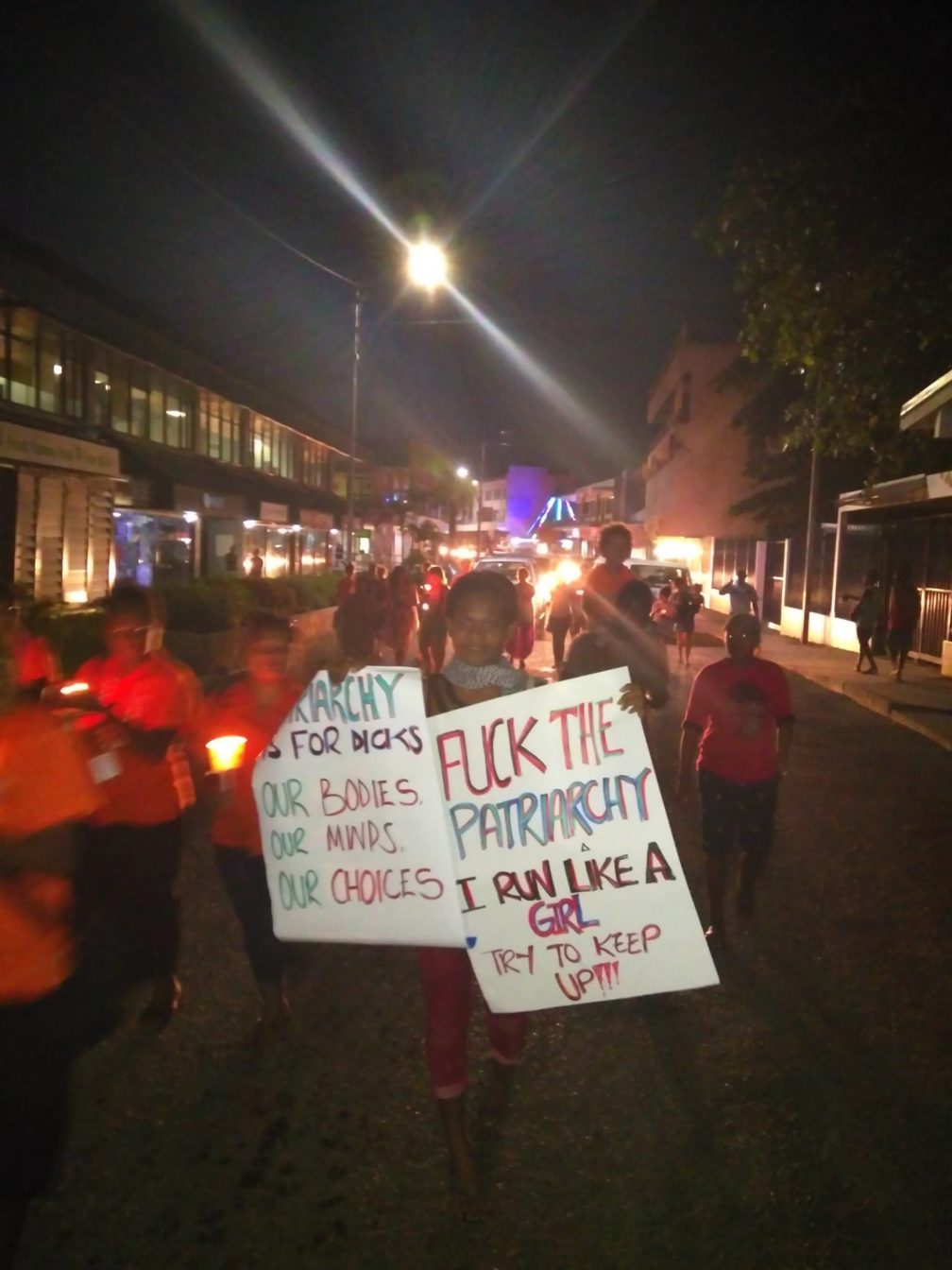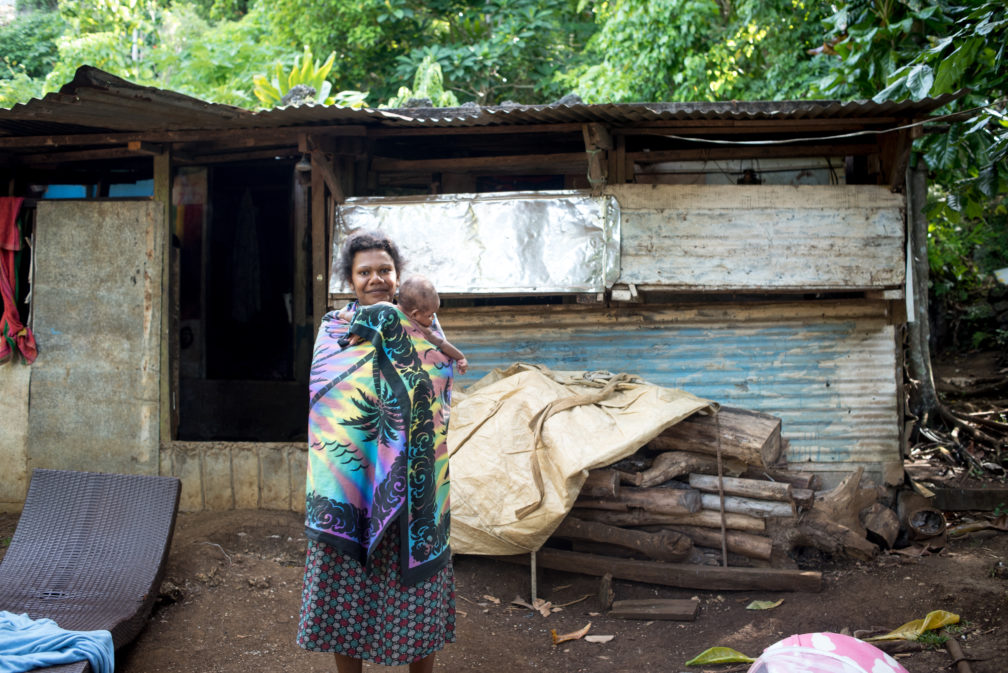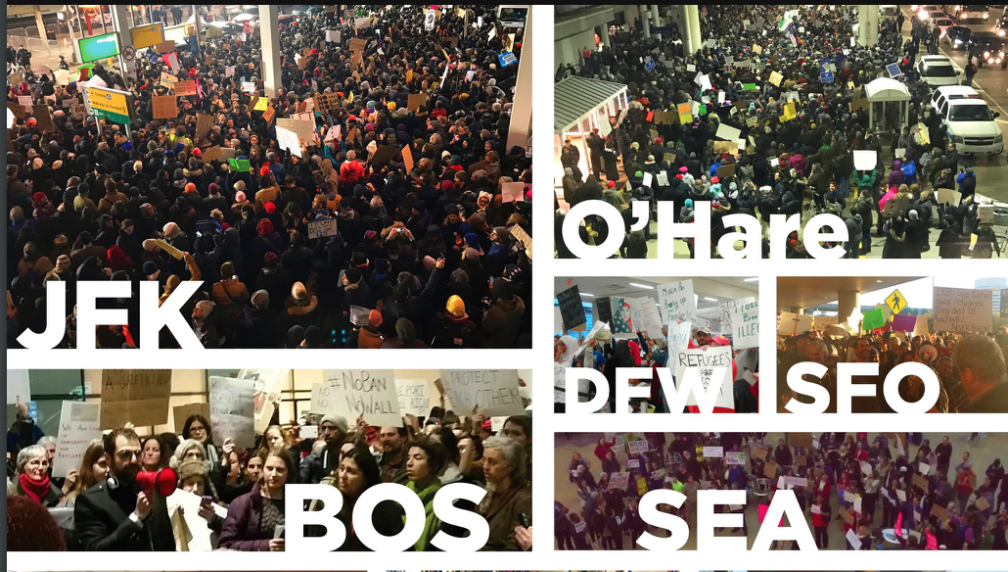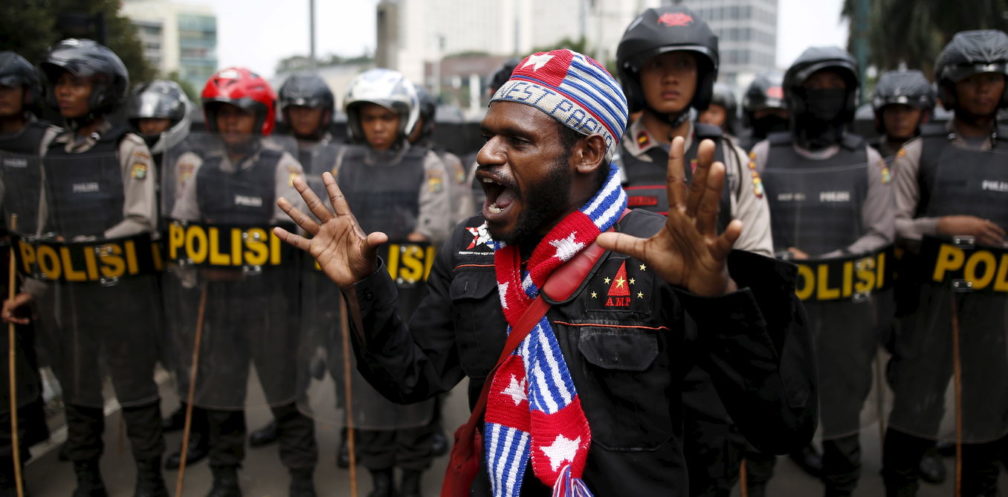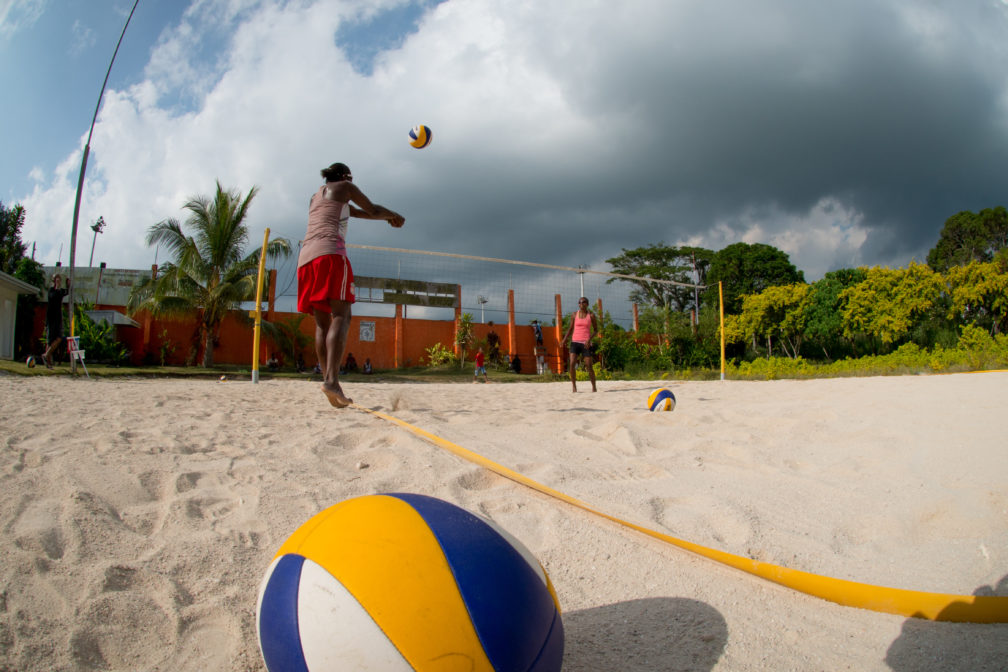I wrote this back in 2002, as America girded itself for war with a largely concocted ‘Axis of Evil’. A massive global outpouring of dissent had mobilised tens of millions, sending them into the streets in opposition to the folly of war. Now, as the USA limps home from its latest foreign adventure, it feels like a good time to revisit those sentiments.
It discusses activism in the 90s and into the third millennium, but obviously without the benefit of seeing how the Occupy movement turned out, or the Arab Spring, or the Iranian uprising, or the Women’s March on Washington, or Black Lives Matter.
And yet….
How George and I found faith
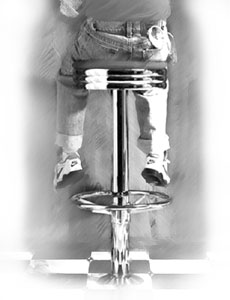 George Walker Bush is an earnest Christian. His road to faith was a hard one.
George Walker Bush is an earnest Christian. His road to faith was a hard one.
“A barstool in Dallas,” he is said to have uttered once, to a gathering of Christian ministers in the Oval Office.
He explained, “If it weren’t for Jesus, I’d still be sitting on a barstool in Dallas.” He was referring to a path in life that for some years had kept him drunk and good for nothing better than propping up the right end of the bar.
I know that barstool – at least, I know how to prop one up. I spent ten years of my life doing it. Like George though, I found faith and a desire to do the Right Thing. Now, I can’t speak for George on most accounts. I really don’t know him at all. So I’ll just explain how I came through….
Having arrived intact in my late thirties, I have developed what a friend of mine likes to call a modus vivendi. While I dislike the term ‘survivor’ for its connotations of helplessness, it nonetheless applies to me. I’ve passed through drug addiction and alcoholism, chronic depression and debilitating anxiety. I’ve learned that it’s possible to descend from abstraction and live – more or less – within the world.
The Romanticism that used to insulate me from the often dreary task of living has been reduced to a soft patina. Now, it exists mostly in a few sentimental indulgences: The habit of singing sappy heartbreak songs in the car. A desire to portray the world as picturesque, and to eschew things clever and complicated in favour of simpler, more traditional forms.
I am, however, still afflicted with ideals. In younger days, they led me to join a team of Greenpeace activists in scaling the Angus MacDonald bridge in Halifax, where we hung a 60 by 60 foot banner deploring the presence of a nuclear-armed warship in Canadian territory[1]. My involvement in Greenpeace continued for some time, and led me to occupy the Peace Tower to protest Canada’s involvement in the 1991 Gulf War.
My activist career would likely have continued to this day, had it not been forced to confront a number of trivial, gadding obstacles. A few years after I joined, the organisation hired a freshly-minted MBA to run it. Its popularity in the preceding years had reached such a point that it was finally playing around with a substantial and stable volume of money. So, the logic went, the best way to continue this growth trend was to apply standard business philosophy: Commoditise and pasteurise the organisation by toning down the incediary rhetoric; start putting money into maintaining offices and staff in order to sustain a serious research and lobbying effort; climb further up the power apparatus in order to leverage greater influence into greater income. And so on into cyclic growth that would make Adam Smith a happy man.
Of course, it didn’t happen that way. The reasons why are numerous and, frankly, boring. The idealists griped about increasing bureaucratisation. The more mainstream elements griped about the more anarchic ones, insisting that spokespeople be appointed and their comments vetted, in order that everyone stay ‘on-message’. The undertaking soon became so burdened with political dross, and its message so muddied, that it lost the intensity and urgency that had made it appealing in the first place.
I didn’t participate much in the unrest. As soon as I saw how the power had begun to accumulate at the center, with its attendant perquisites and prerogatives, I wandered away.
It’s hardly the first time such a thing has happened. Nor is it a particularly dangerous or damning example. Orwell’s Animal Farm describes something much more hideous. The increasing lassitude of the news media, after a brief (if idiosyncratic) flirtation with social justice in the late 1960s and early 1970s, is the source of endless flagellation in almost every privileged society.
I have a friend who’s often right. She’s an acute observer of history, quick to point out that the best elements of any society are regularly – cyclically, even – sucked into the centre of the societal vortex. Once there, they are inevitably co-opted. Every interest, once vested, becomes more concerned with self-preservation than with the risks inherent in adaptation to altered circumstance.
It’s easy, therefore, for a privileged white male such as I to spend his youth on the barricades, when he has everything to gain and nothing to lose. But with the onset of a career, family, and other long-term obligations, his concerns become more focused on protecting the little patch of turf that he’s come to identify as his own. Given the right circumstances, the logic states, every Abby Hoffmann becomes an investment adviser.
Every adult activist confronts this Rubicon eventually. Their acceptance within (not by) society is largely measured by the degree to which they compromise in the face of the apparently competing exigencies of making life better for oneself or making life better for others.
I’m not sure which was worse: Watching members of my generation ensconce themselves within the social apparatus and close the gate behind them, or watching the remaining activists’ ideals become encrusted with political expediency and organisational self-interest.
I’m not confident that my fall away from activism was any less dangerous (or desultory) than the others’. I gave up on formal organisations altogether, reserving my attempts to do good to the most finite of acts. I also avoided the encumbrances of family, mortgage and investment. By refusing to compromise on anything, I removed myself from participation in many common joys, great and small.
Let me tell you, there are worse things than chanting shop-worn, half-relevant slogans while a hundred pie-eyed, unreflective youths batter the conscience of the nation with hand-painted placards. Try standing alone on a frigid February night in 1991, lighting a single candle from the eternal flame on Parliament Hill under the bored scrutiny of the federal police.
That’s how things looked in ’91. Gatherings of the peace movement typically numbered in the dozens, and consisted for the most part of the regurgitative act of reciting second-hand polemic. The news media ignored us – they were off and away, happily scampered about within the playground cordons, gawking at the fireworks over Baghdad.
As the phosphors dimmed from the last smart-bomb video, the machinery of vested interest kept churning out its grist. Back home, artists and thinkers happily traded away the right to speak for others, in exchange for the right of others to speak for themselves – as if the two were mutually exlusive. The pool of rhetoric achieved such shallowness that mere disagreement became anathema. And Heaven help the fool resorting to reasoned critique.
For all that I could see, the 1990s described a descending spiral for much, if not all, of North American society. So, when George Bush Junior[2] stole the Presidency of the United States, and when the electorate rolled over and took it, I was embittered, but not surprised. When his administration undertook to subvert or abrogate virtually every well-intentioned piece of internationalism that a nascent world community had managed to enact, the last patches of my idealism were chafed almost to nothingness.
In the year that followed the attack on the World Trade Center, I watched that truculent late-adolescent toss the furniture of democracy into the fire, stoking the blaze of a Righteous War on Evil without regard for where – or whether – the rest of us would be left standing.
What kind of a man is it, I’ve asked myself, who can pull himself up off a barstool in Dallas, ratchet his way up the political ladder with the zeal of newfound purpose, and promptly push much of the world into the most precarious posture it’s seen since 1961? What kind of a light shines so brightly on George’s path that its shadow threatens to erase everything on which it falls?
I can’t answer that. I’ve tried time and again to understand. We share so much, George and I. We’re both the sheltered scions of privileged families. We’ve both realised, later than most, that life is more than a walking shadow. Poor players both, we’ve embraced what we can of life. But I’ll be damned if I’ve ever possessed his certitude, his faith.
I find myself recoiling from this contradiction, that someone who has found the love of Jesus could engage in such arrant brinksmanship that everyone in his purview is threatened. If it isn’t the theft of liberties or the coercive politics of power, it’s the threat of wholesale slaughter that repels me utterly.
I love Jesus too, as much as I love any human being – though maybe less than some. There’s part of me that wishes, though, that he’d left that man sitting there in Dallas, and bestowed his love elsewhere.
The Romantic in me accepts that it’s unkind to say that of anyone. And the idealist is wont to point out that, in many important ways, a significant part of humanity is poised, metaphorically, on a barstool in Dallas, swilling away its privilege. The cynic in me is inclined to join them for a round or two – at least until the Patsy Cline singalong is over.
So imagine my suprise last Saturday night, when I returned from my local cafe to find that millions – no one knows exactly how many – had taken time from their lives to walk together for a day. And imagine my growing elation as, in one news report after another, these marchers explained in reasoned terms why they felt a thoughtless march to war was wrong. The staff writers at Time and Newsweek must have been baffled by the sudden need to express a world view that was not blind to subtlety, that weighed and balanced the facts, and came to the practical judgement that the presence of evil in the world did not justify the commission of a greater sin. For one day, at least, the Western World got off its barstool.
I’m no longer fool enough to think that this marks the end of our complacency – or even our descent. Nor am I inclined to believe that the light of Jesus has for a moment illuminated all of Christendom. I am chastened, though. Chastened by the realisation that this sudden surge of human concern consisted of a single act multiplied ten million times: A man, a woman judged that this one thing required that she, that he, alone if need be, had to speak. Ten million times, she said this war is wrong.
I can’t say for certain what light it was that dawned on me. I know it’s not divine. Not in a sense that any of the ministers in the Oval Office would understand, anyway. And I don’t know for sure whether it’s knocked me clear of the bar. But I know one thing: This coming March, if I find myself walking to Parliament Hill, candle in hand, whether I’m alone, in the company of dozens or thousands, there’ll be one more barstool in Dallas sitting empty.
[1] Which, I hasten to mention, was then and is still illegal. This illegality is conveniently circumvented by a federal government which neglects to ask visiting U.S. and British warships whether they carry such weapons of mass destruction. The warships, in turn, politely decline to confirm or deny the presence of said weapons.
[2] Why does nobody call him ‘Junior’? He’s junior in almost every way.

